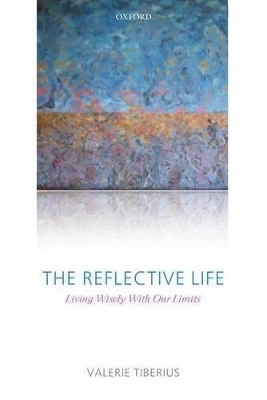
The Reflective Life
Living Wisely With Our Limits
Seiten
2008
Oxford University Press (Verlag)
978-0-19-920286-7 (ISBN)
Oxford University Press (Verlag)
978-0-19-920286-7 (ISBN)
How can we live life wisely? Tiberius argues that we need to develop the kind of wisdom that emphasizes the importance of learning from experience. We need to care about things that sustain us and give us good experiences, have perspective on our successes and failures, and be moderately self-aware and cautiously optimistic about human nature.
How should you live? Should you devote yourself to perfecting a single talent or try to live a balanced life? Should you lighten up and have more fun, or buckle down and try to achieve greatness? Should you try to be a better friend? Should you be self-critical or self-accepting? And how should you decide among the possibilities open to you? Should you consult experts, listen to your parents, do lots of research? Make lists of pros and cons, or go with your gut? These are not questions that can be answered in general or in the abstract. Rather, these questions are addressed to the first person point of view, to the perspective each of us occupies when we reflect on how to live without knowing exactly what we're aiming for. To answer them, The Reflective Life focuses on the process of living one's life from the inside, rather than on defining goals from the outside.
Drawing on traditional philosophical sources as well as literature and recent work in social psychology, Tiberius argues that, to live well, we need to develop reflective wisdom: to care about things that will sustain us and give us good experiences, to have perspective on our successes and failures, and to be moderately self-aware and cautiously optimistic about human nature. Further, we need to know when to think about our values, character, and choices, and when not to. A crucial part of wisdom, Tiberius maintains, is being able to shift perspectives: to be self-critical when we are prepared for it, but not when it will undermine our success; to be realistic, but not to the extent that we are immobilized by the harsh facts of life; to examine life when reflection is appropriate, but not when we should lose ourselves in experience.
How should you live? Should you devote yourself to perfecting a single talent or try to live a balanced life? Should you lighten up and have more fun, or buckle down and try to achieve greatness? Should you try to be a better friend? Should you be self-critical or self-accepting? And how should you decide among the possibilities open to you? Should you consult experts, listen to your parents, do lots of research? Make lists of pros and cons, or go with your gut? These are not questions that can be answered in general or in the abstract. Rather, these questions are addressed to the first person point of view, to the perspective each of us occupies when we reflect on how to live without knowing exactly what we're aiming for. To answer them, The Reflective Life focuses on the process of living one's life from the inside, rather than on defining goals from the outside.
Drawing on traditional philosophical sources as well as literature and recent work in social psychology, Tiberius argues that, to live well, we need to develop reflective wisdom: to care about things that will sustain us and give us good experiences, to have perspective on our successes and failures, and to be moderately self-aware and cautiously optimistic about human nature. Further, we need to know when to think about our values, character, and choices, and when not to. A crucial part of wisdom, Tiberius maintains, is being able to shift perspectives: to be self-critical when we are prepared for it, but not when it will undermine our success; to be realistic, but not to the extent that we are immobilized by the harsh facts of life; to examine life when reflection is appropriate, but not when we should lose ourselves in experience.
Valerie Tiberius is Professor of Philosophy at the University of Minnesota.
PART I: THE REFLECTIVE LIFE AND REFLECTIVE VALUES; PART II: WISDOM AND PERSPECTIVE; PART III: BEYOND THE FIRST PERSON POINT OF VIEW
| Erscheint lt. Verlag | 3.4.2008 |
|---|---|
| Verlagsort | Oxford |
| Sprache | englisch |
| Maße | 165 x 244 mm |
| Gewicht | 508 g |
| Themenwelt | Geisteswissenschaften ► Philosophie ► Ethik |
| Geisteswissenschaften ► Religion / Theologie | |
| ISBN-10 | 0-19-920286-9 / 0199202869 |
| ISBN-13 | 978-0-19-920286-7 / 9780199202867 |
| Zustand | Neuware |
| Informationen gemäß Produktsicherheitsverordnung (GPSR) | |
| Haben Sie eine Frage zum Produkt? |
Mehr entdecken
aus dem Bereich
aus dem Bereich


